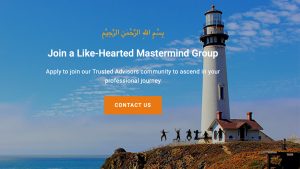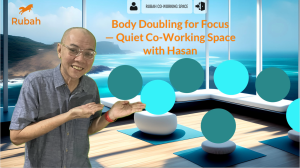
Certainty Anchors – what are yours?
I discovered that in a book called “Uncertainty,” Jonathan Fields speaks about the power of rituals and habits that occur at specific intervals during the day in order to help us live more creative lives.
“The simple physical act of engaging in ritual and routine serves as a certainty anchor…
…A certainty anchor is a practice or process that adds something known and reliable to your life when you may otherwise feel you’re spinning off in a million different directions.
Rituals and routines can function as certainty anchors by offering a sense of connection with the divine or with a like-minded community.”
What are yours?
Monthly, I meet my coach.
Weekly, I update my accountability buddies.
Daily, my 5 daily prayers (“salah” or “solat”). Within them my favourite posture is the prostration (“sujood”).
Prostrating in utter humility, my heart is at a higher level than my head, so I literally FEEL the gush of blood to my brain.
I believe that when I prostrate (total of 34 times in the 5 times a day) my brain receives more nourishment, which has a good effect upon memory, vision, hearing, concentration, psyche and all other cognitive abilities.
Again, what are your certainty anchors, be they daily or other frequencies in the month?
Benefits of certainty anchors include the following.
✔️ Reduced anxiety: Certainty anchors can provide a sense of stability and security in uncertain times, helping to reduce anxiety and stress.
✔️ Enhanced decision-making: Having a few key certainties in life can make decision-making easier, as you can base choices on your core values and beliefs.
✔️ Increased resilience: Certainty anchors can help you bounce back from setbacks and adapt to changing circumstances, as they provide a foundation of stability.
✔️ Improved focus and productivity: Knowing your certainty anchors can help you prioritize and concentrate on what truly matters to you.
✔️ Greater well-being: Having a sense of certainty can contribute to overall well-being and a more positive outlook on life.
Jonathan Fields’ approach encourages individuals to identify and cultivate their own certainty anchors to navigate the uncertainties of life effectively.
Related posts:
There are lots of literature that describe the benefits of prostration (“sujood” or “sajdah”). Here is one:
Amazing Benefits of Prostration in Islam and new science on “Earthing”




